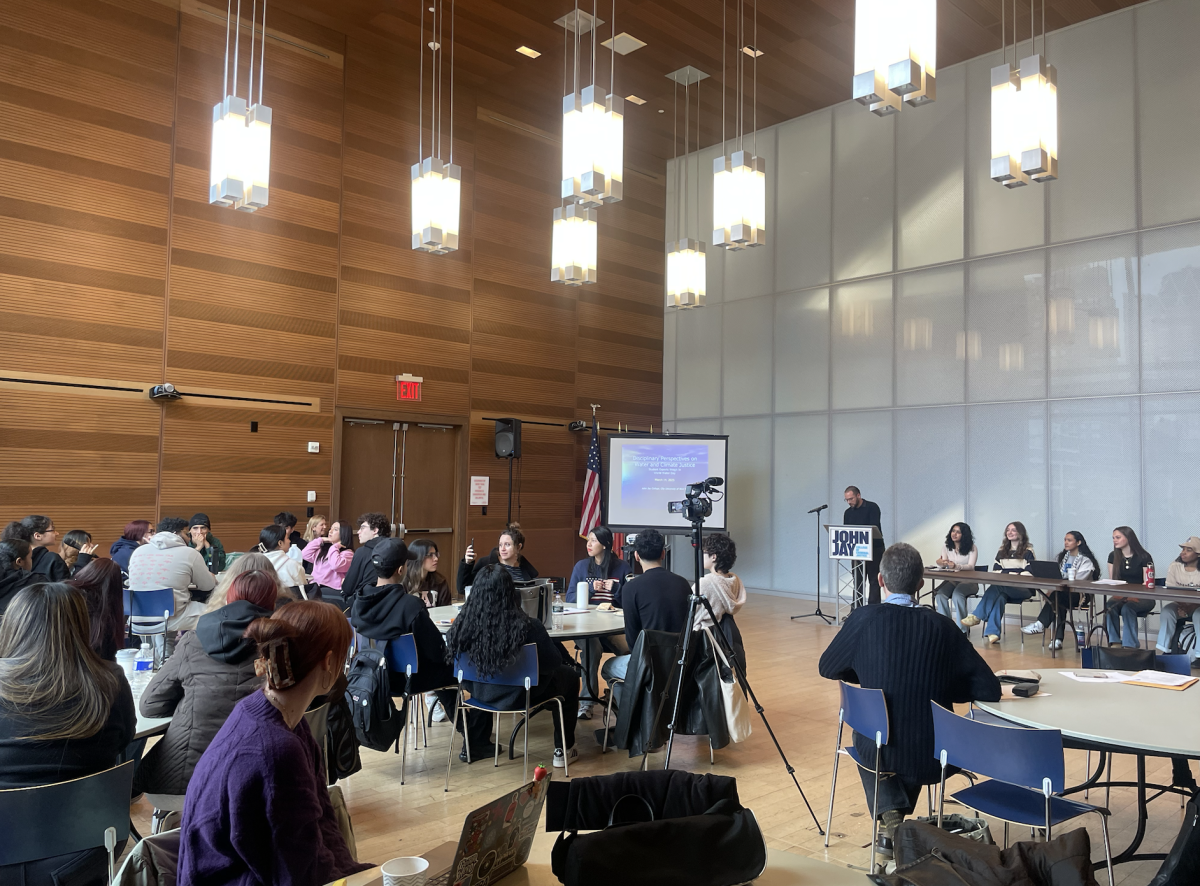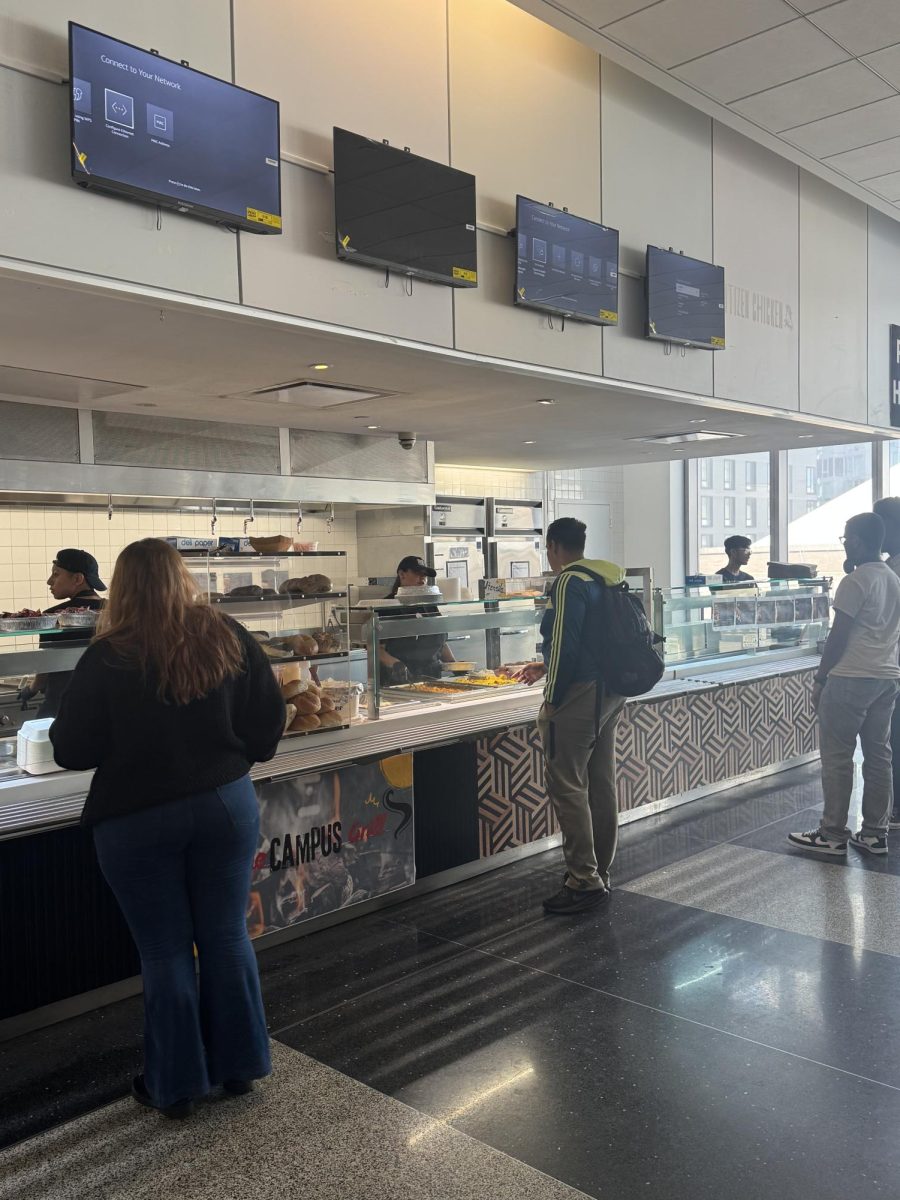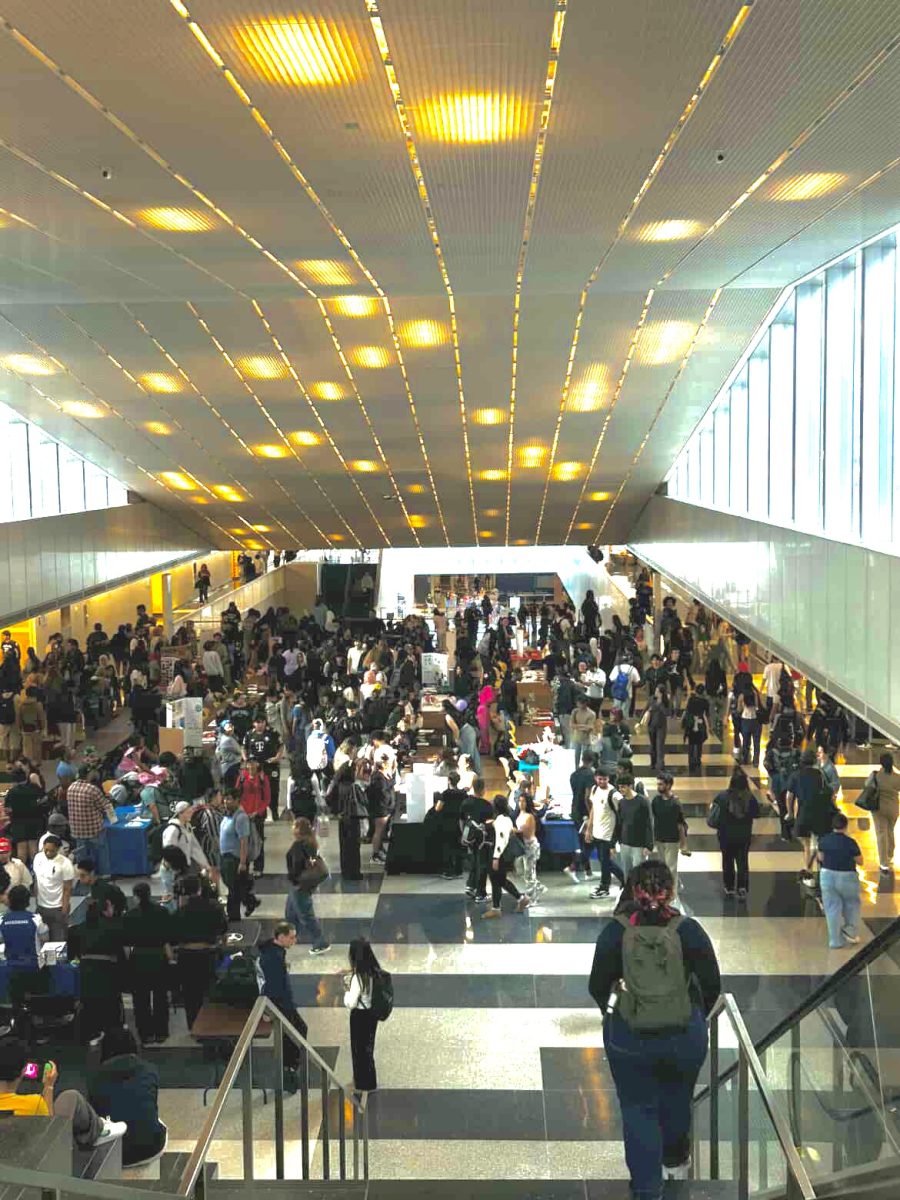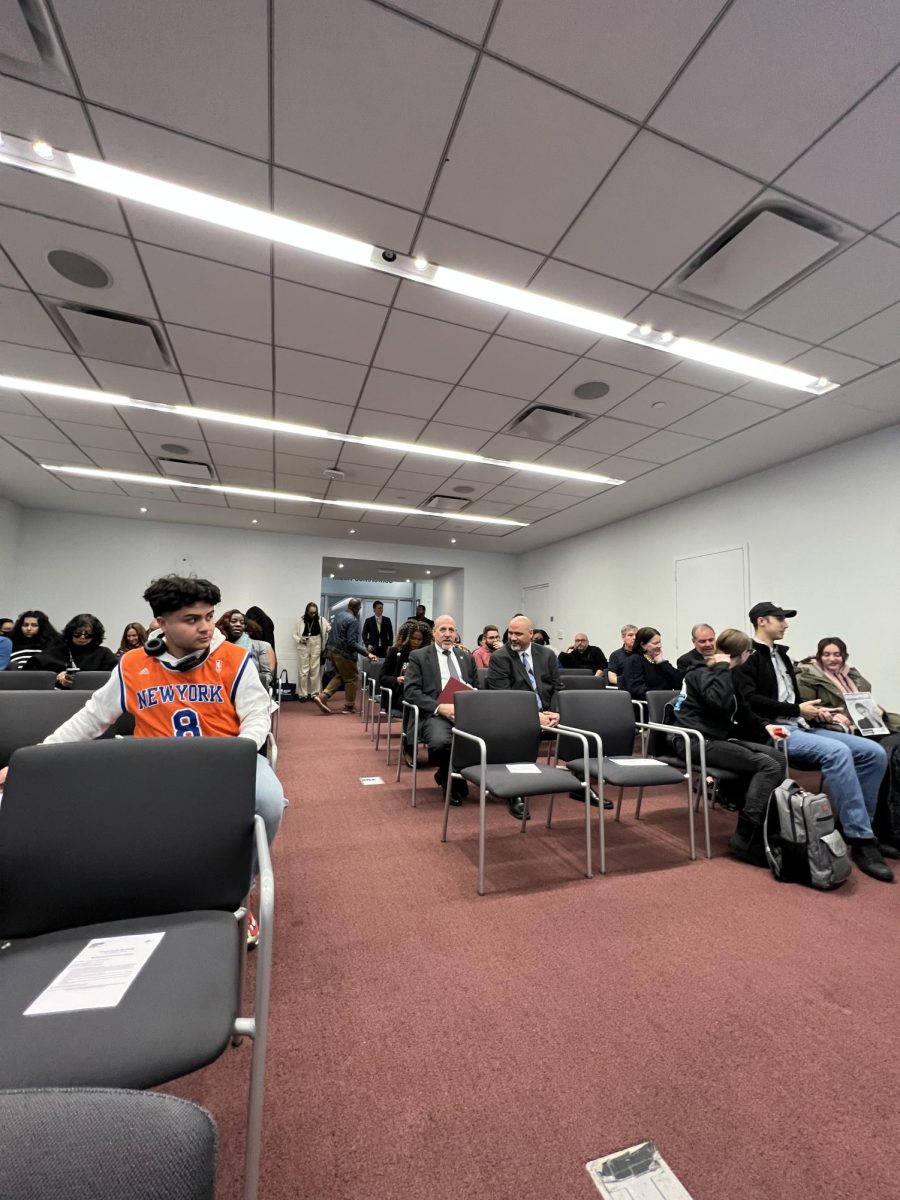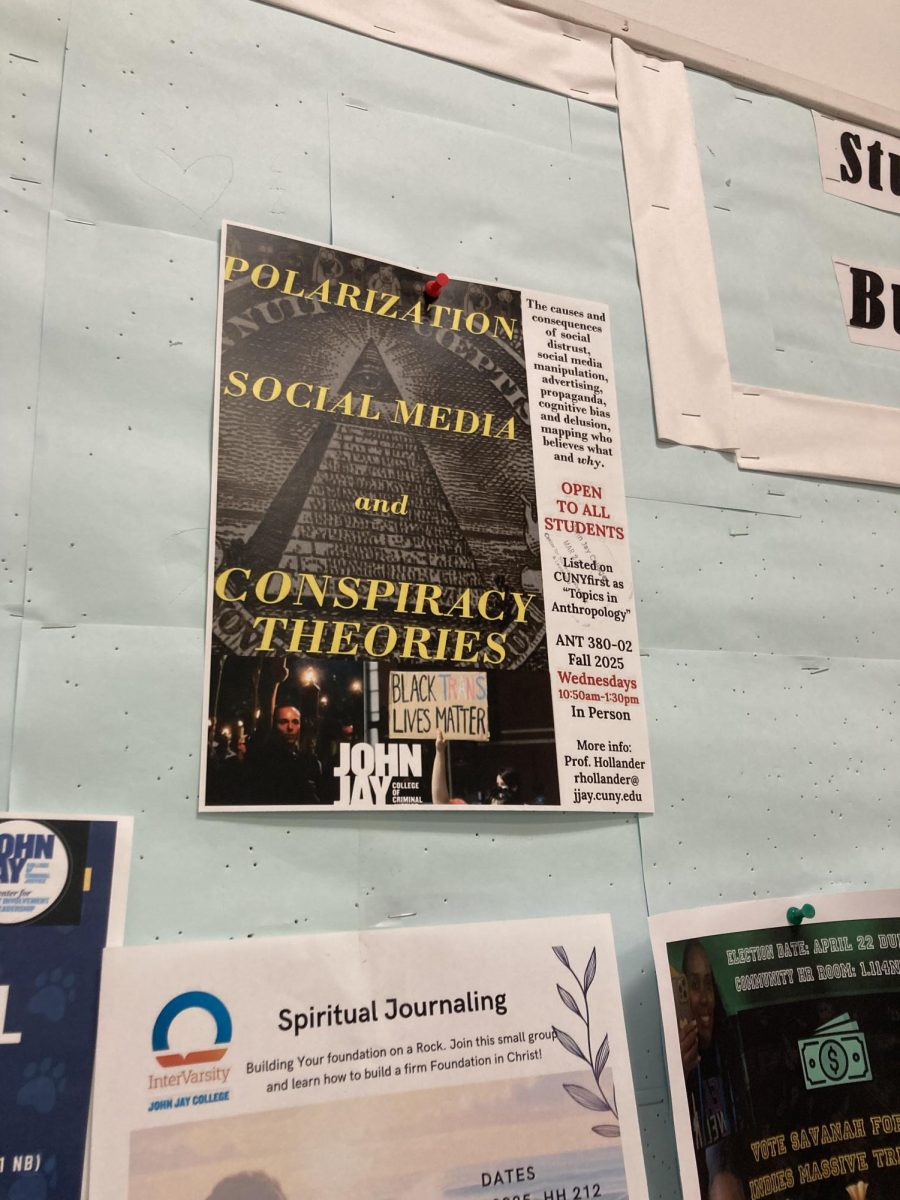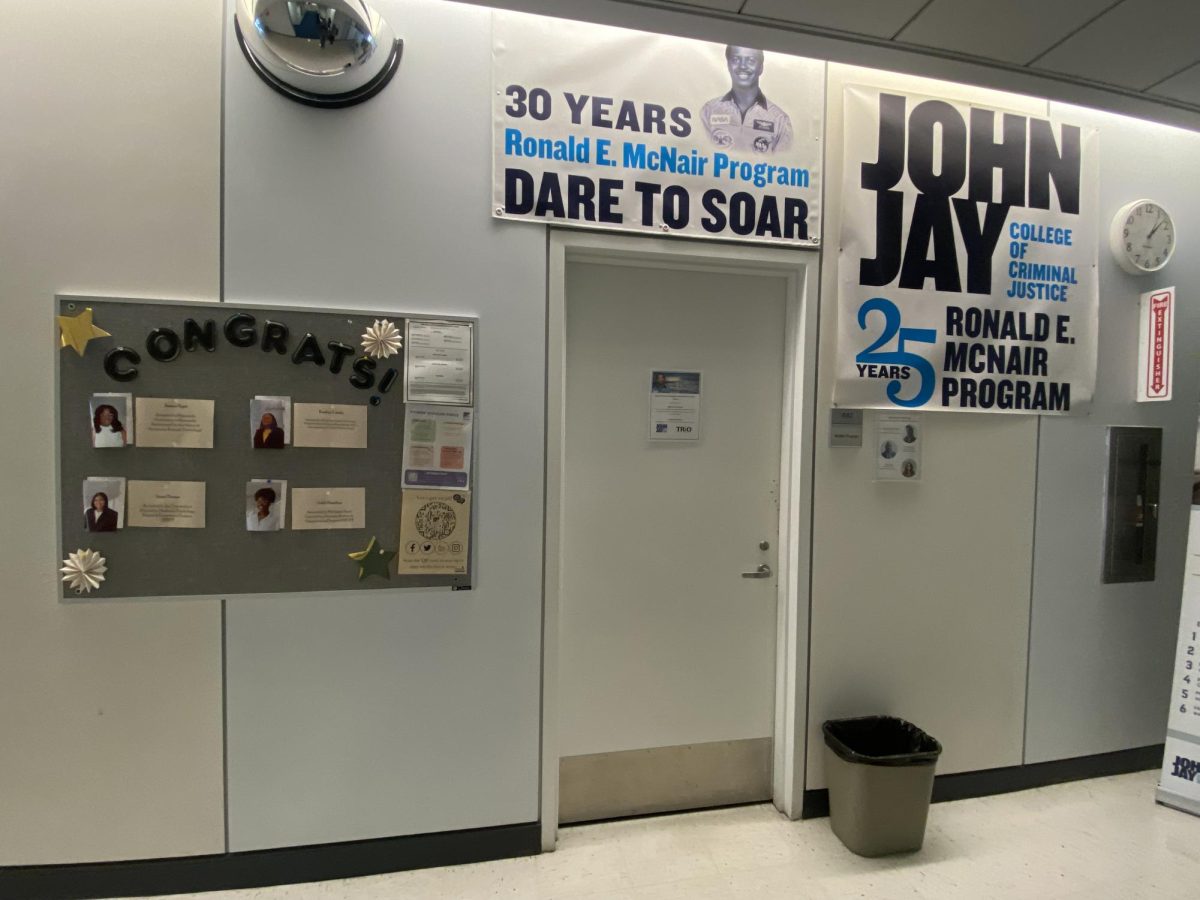In honor of World Water Day on Saturday, March 22, members of John Jay’s Environmental Justice and Sustainability Program hosted a series of events on March 20th.
The first event was held in the Moot Court from 11:15 a.m. to 1:30 p.m. and started with a panel of six students, who spoke about how their coursework has the potential to influence water crises around the globe. The panelists represented a variety of majors including forensic science, forensic psychology, criminology, law and society, international criminal justice, and English.
The student panel shared how their disciplines incorporate research and advocacy for those who do not have equal access to water.
The panel also discussed how water crises are related to war, class, and race.
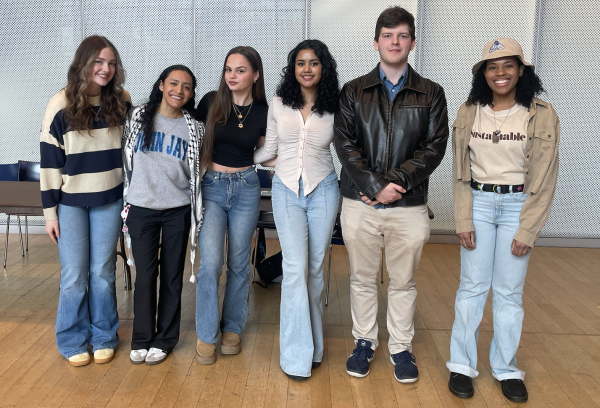
Dea Karameti, freshman panelist and criminology major, commented on how John Jay students are affected by the crises.
“We as a society cause this issue,” Karameti said. “We are harming the planet we live on.”
After the panel’s Q&A session, attendees were given materials to watercolor in an effort to promote relaxation and community building. This portion of the event was supported by the Environmental Justice Club.
Sydney Kuhl, junior panelist and forensic science major, explained why watercoloring was a preferred activity at the panel session.
“We wanted to put a positive spin on Water Day since we have been talking a lot about the negatives,” said Kuhl.
The second portion of the day was incorporated into the major and minor fair in Hound Square during community hour. The Environmental Justice (EJ) minor information table was run by Professors Silvina Calderaro, Alexander Schlutz, and Alejandro Garcia Lozano.
In addition to EJ minor tabling, there was a scavenger hunt option for students looking for more involvement at the fair.
Professor Alexander Schlutz, English professor and former program advisor, commented on the interdisciplinary nature of environmental justice.
“These environmental issues are connected to whatever academic pursuits students follow and they can connect it to any interest,” said Schultz. “They aren’t separate [because] nature isn’t separate from human beings.”
Dr. Alejandro Garcia Lozano, the current EJ program advisor and anthropology professor, gave a similar sentiment.
“We want students to think about the environmental issues globally and the city in which we live,” said Garcia Lozano.
There are also students just as involved as their professors in environmental justice advocacy. The Environmental Justice Club provides a place for students to explore and develop their advocacy endeavors.
Zamama Hanif, junior criminology major and president of the Environmental Justice Club, shared why she became involved in environmental advocacy.
“Environmental injustice is entwined with other injustices and it is important for me to make people realize it isn’t just melting icebergs, but bombings and gassing areas too,” Hanif said. “I wanna use my platform to inform other people by [sharing the stories of] people that don’t have a voice.”
The final event of the day, Workshop: “Systems Change in Difficult Times,” was held in the Moot Court and gave students a hands-on approach to addressing environmental and social challenges through four themes: earth (boundaries), fire (change), space (letting go), and water (adapting).
The event covered problems the world is facing, who can help fix them, who is going to try to stop the change, and how advocates should work around those barriers to justice. Students answered those questions by drawing the webs of connections involved in different harmful environmental practices in small groups.
Aliyah Ramlochan, junior and criminal justice major, attended the workshop and commented on the message she got from it.
“Environmental justice is about saving people’s lives, this event spreads awareness about it, and we all need to care more about it,” said Ramlochan.
Dr. Garcia Lozano ended the discussion about water with a statement that describes both the element and the art of adapting.
“Water is the source of life for all of us. It flows easily and goes where it’s meant to go,” said Garcia Lonzo.


